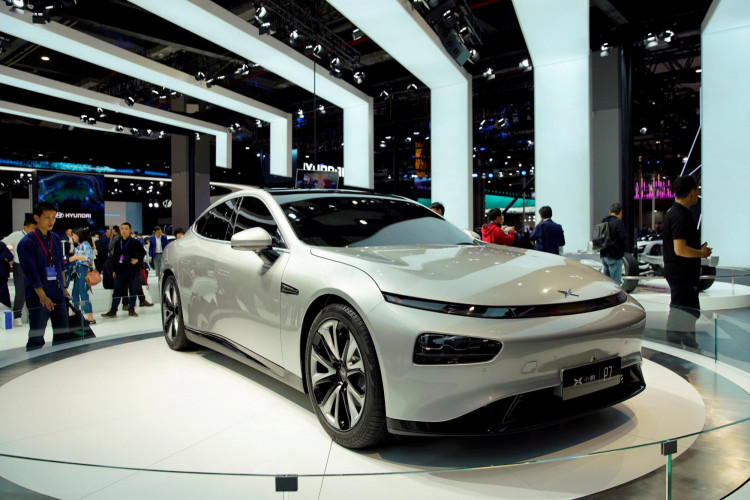Indonesia's government has rolled out a series of policies to boost the electric vehicle (EV) industry. Anindya Novyan Bakrie, president of Indonesian company Barkie&Brothers, suggested that the nation aims to serve as a gateway connecting other ASEAN countries.
Bakrie believes that companies producing EVs in Indonesia will view ASEAN as a single entity, allowing nations to collaborate and leverage their strengths to foster regional automotive ecosystem growth.
Barkie&Brothers, a leading Indonesian company specializing in manufacturing and infrastructure, has an EV subsidiary, VKTR, which produces electric buses, EV motors, and charging stations.
Previously, Indonesian President Jokowi incorporated EV production into the 2015-2035 national industrial master plan and included EV infrastructure development in the 2020-2024 national midterm plan.
According to the International Council on Clean Transportation, in April, Jokowi participated in the Major Economies Forum on Energy and Climate. Along with 16 other leaders, he announced a collective goal for zero-emission vehicles (ZEVs), aiming for over 50% of light vehicles and at least 30% of medium and heavy vehicles to be electrified by 2030.
ZEVs refer to battery electric vehicles, plug-in hybrid electric vehicles, and fuel cell electric vehicles.
Furthermore, as a nickel producer, Indonesia implemented a policy in 2020 prohibiting the export of raw nickel, a key material for EV lithium-ion batteries, to encourage domestic EV-related industries.
Similarly, bauxite, another crucial material for producing EV lithium batteries, is used to make aluminum, a material for manufacturing lightweight and sturdy EVs. Starting this June, Indonesia also imposed a ban on bauxite exports to expand its domestic EV downstream business.
For consumers purchasing domestically manufactured EVs or those with over 40% of components made domestically, the Indonesian government offers subsidies.
On March 20, Indonesia announced an allocation of 7 trillion rupiah (approximately $456 million) from the national fund to subsidize EV consumption. This plan will cover the sales of 800,000 new electric motorcycles and the retrofitting of 200,000 internal combustion engine motorcycles.
Currently, Indonesia plans to produce 600,000 electric light vehicles and 2.45 million electric two-wheelers by 2030.
To achieve this goal, Indonesia actively collaborates with international manufacturers.
Public records show that over the past three years, the Indonesian government has signed agreements worth over $15 billion with companies including Hyundai, Ford, Volkswagen, Wuling, CATL, LG, and Foxconn, involving nickel mining, refining, and battery manufacturing in the country.
On July 4, Indonesia and Australia inked a "win-win" EV battery agreement, planning to strengthen cooperation in nickel and lithium mining.
On July 31, Indonesia's Investment Minister announced that EV manufacturers like BYD and Wuling would establish factories in Indonesia. Subsequent discussions were held with executives from BYD and Tesla.
However, Nishita Aggarwal, an automotive analyst at The Economist Intelligence Unit, stated that it would be challenging for Indonesia to replace Thailand as the regional automotive production hub. Thailand has a long-standing export-oriented automotive industry, and Indonesia also faces challenges from low-cost producers like Vietnam and the Philippines.
In 2022, BYD had already signed an agreement with Thailand's WHA Corp. PCL to establish its first EV factory in Southeast Asia, expected to start production in 2024 with a capacity of around 150,000 vehicles.
According to the Thai Industrial Federation, Thailand sold 24,980 pure electric vehicles in the first five months of this year, while Indonesia's low-emission vehicle sales (including hybrids and EVs) for the entire year of 2022 were only 15,437.
Currently, Toyota, its subsidiary Daihatsu, and Honda account for two-thirds of Indonesia's car sales, but these companies have been slow in their electrification transition.
Toyota indicated that it has no plans to produce EVs in Indonesia.
Foreign media reports suggest that due to Indonesia's overall low household income, weak infrastructure, and traffic congestion in cities, the country currently faces challenges in opening up the domestic EV market.
Thus, besides subsidies, Indonesia needs to introduce more robust measures to develop the domestic EV market and actively collaborate with major manufacturers to enhance EV production standards.
Nevertheless, BMI automotive analyst Tsoai stated that within ASEAN, Indonesia will "play a significant role in the upstream sector of the EV supply chain" and will promote the development of the EV industry throughout the region.






